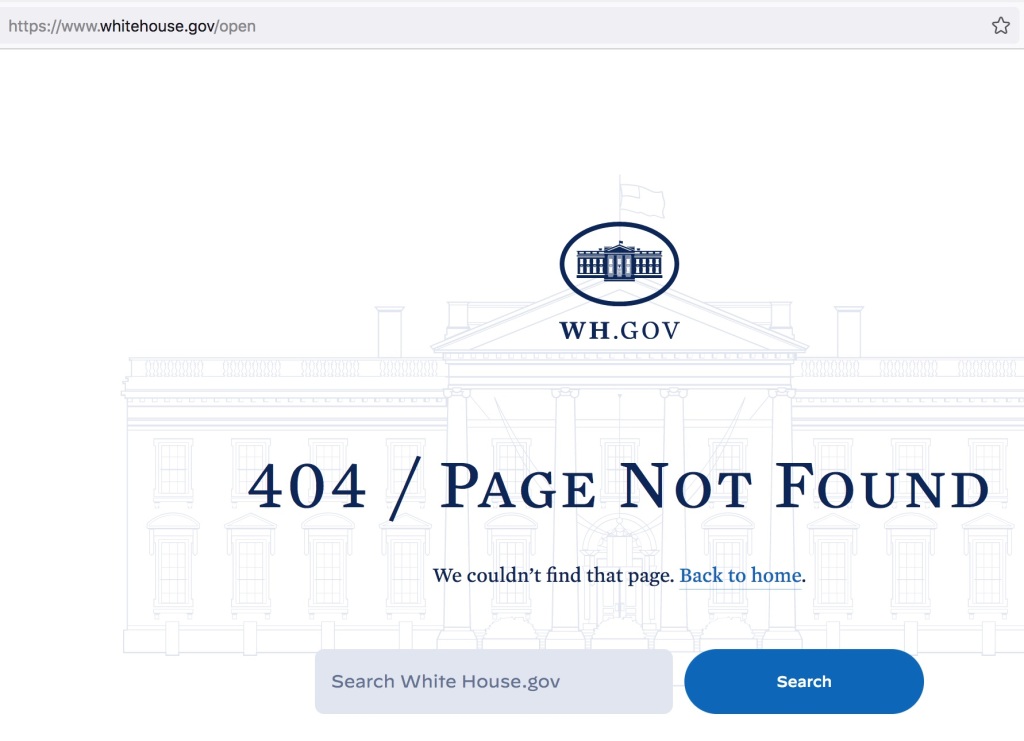There are reasons to be hopeful about open government as the United States as the new year begins, but also cause for grave concern. In December 2023, researchers at the Independent Review Mechanism (IRM) of the Open Government Partnership (OGP) confirmed what good governance advocates have said since 2017: the federal government is still not meeting the standards for open government domestically that the State Department and U.S. Agency for International Development (USAID) encourages other nations to adopt internationally.
Instead of standing with people demanding transparency from U.S. government, as President Biden encouraged other nations to do in December 2021, the White House refused to hold meetings in person in 2022 and 2023 and to incorporate the priorities of the (dwindling number of) good governance organizations and individuals willing to participate in voluntary multi-stakeholder processes after years of eroding trust and inaction.
Instead of seizing the moment and reviving the process with renewed leadership, the Biden administration starved OGP of attention, capacity, and relevance while creating a far weaker multi-stakeholder initiative, the Summit for Democracy.
The White House did not co-create a new “National Action Plan” for Open Government in 2022 with the American people and then announce it in a press conference, embrace accountability for the failures of the previous administration, and then use participation and collaboration to build back public trust.
Instead, the IRM found that the White House pre-drafted and then published a report full of vague, mostly pre-existing commitments – including many that were not relevant to government transparency and accountability – ignored expert feedback regarding opaque processes and flawed product, and then published yet another weak open government plan online over the holidays in December 2022.
This is unfortunately not novel. The OGP IRM has found the United States to have repeatedly acted contrary to process for years now. Nonetheless OGP restored the country to good standing after the Trump White House delivered a new plan in 2019 – despite ample cause for keeping a corrupt, secretive administration under review prior to a historic pandemic and attempted auto-coup.
After documenting the White House’s failures to engage the American public at scale, collaborate in choosing and drafting commitments on transparency and accountability, disclose comments, or provide a reasoned response for ignoring the consensus recommendations of good governance organizations, researchers at the Open Government Partnership Independent Review Mechanism recommended that the U.S. government collaborate with civil society to identify verifiable commitments with the most potential and refine them in 2024.
In their report, the IRM identified six “promising commitments” in a policy area that important to stakeholders or the national context which are verifiable, have an open government lens, and modest or substantial potential for results:
- Commitment 1: Production, dissemination, and use of equitable data
- Commitment 4: Public access to federally funded research
- Commitment 8: Data for environmental justice Commitment 18: Government-wide anti-corruption strategy
- Commitment 27: Access to government information through FOIA
- Commitment 35: Effective and accountable policing and criminal justice
The good governance community also called on the US government to add new commitments to the 5th NAP in August, which the White House has so far declined to do — despite a mechanism that would allow it, as in the 3rd NAP.
Unfortunately, the White House has yet to acknowledge the (incredibly) constructive criticism from the researchers by revising selected commitments – much less added new ones, as the Obama White House did in 2016.
Instead, the administration invested a million dollars to fund an Open Government Secretariat within the General Services Administration to track progress on the commitments the White House chose and host a series of virtual seminars in 2023, complying with the bare minimum of the Open Government Partnership’s requirements for documenting implementation.
The Biden administration also has yet to respond formally to the “contrary to process” letter the Partnership sent in August or the letter a coalition of good governance groups sent to the President, bring senior officials to in-person roundtables in DC and around the nation, fix an opaque process, and heal badly broken relationships.
There continue to be good faith efforts across the agencies in the executive branch, from the National Archives to the General Services Administration, but strategic silence from the White House on open government has signaled to civil society and officials alike that this is not a priority.
If the President and his advisors see the value of investing political capitol, oversight capacity, and top-level leadership in open government across the federal government, change is possible. It’s crucial to provide dedicated civil servants with the air cover and capacity to do the work necessary to bring dormant or dissolved policies, programs, and partnerships back online to build resilience against headwinds for American democracy at home and abroad.
If the United States does not lead by the power of our example in 2024, our government will lose an opportunity to build trust in democratic governance through accountability and increase resilience against authoritarianism though transparency.








